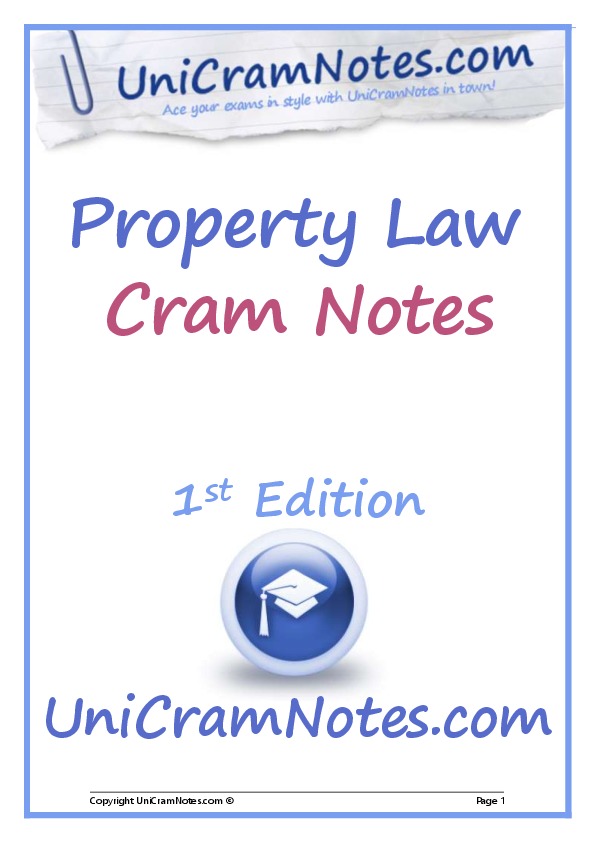D. PRIOR EQUITABLE V SUBSEQUENT EQUITABLE As between persons having only equitable interests, if their equities are in all other respects equal, priority of time gives the better equity (Rice v Rice) Priority of time is the ground of preference last resorted to. A court will only resort to this ground if, after an examination of their relative merits, there is no other sufficient ground of preference between the two equitable interests. Determining relative merits: (Rice v Rice) (1) the nature and condition of the equitable interests, (2) the circumstances and manner of their acquisition, (3) the conduct of each party Allen v Knight – Possession of title deeds: prima facie possession is not determinative. The circumstances surrounding the possession of title deeds should be considered. – In this case, P could have retained title as a lien (thus securing against subsequent interest), but voluntarily gave deeds to purchaser (which allowed them to represent their title as free from incumbrance)
The most concise and updated Property Law and Land Law Study Notes for Australian Law Students.
Includes Model Exams and Model Exam Answers.
(Click here to purchase just the Notes)
Approximately 20367 words over 49 pages. Prepared in 2025.










